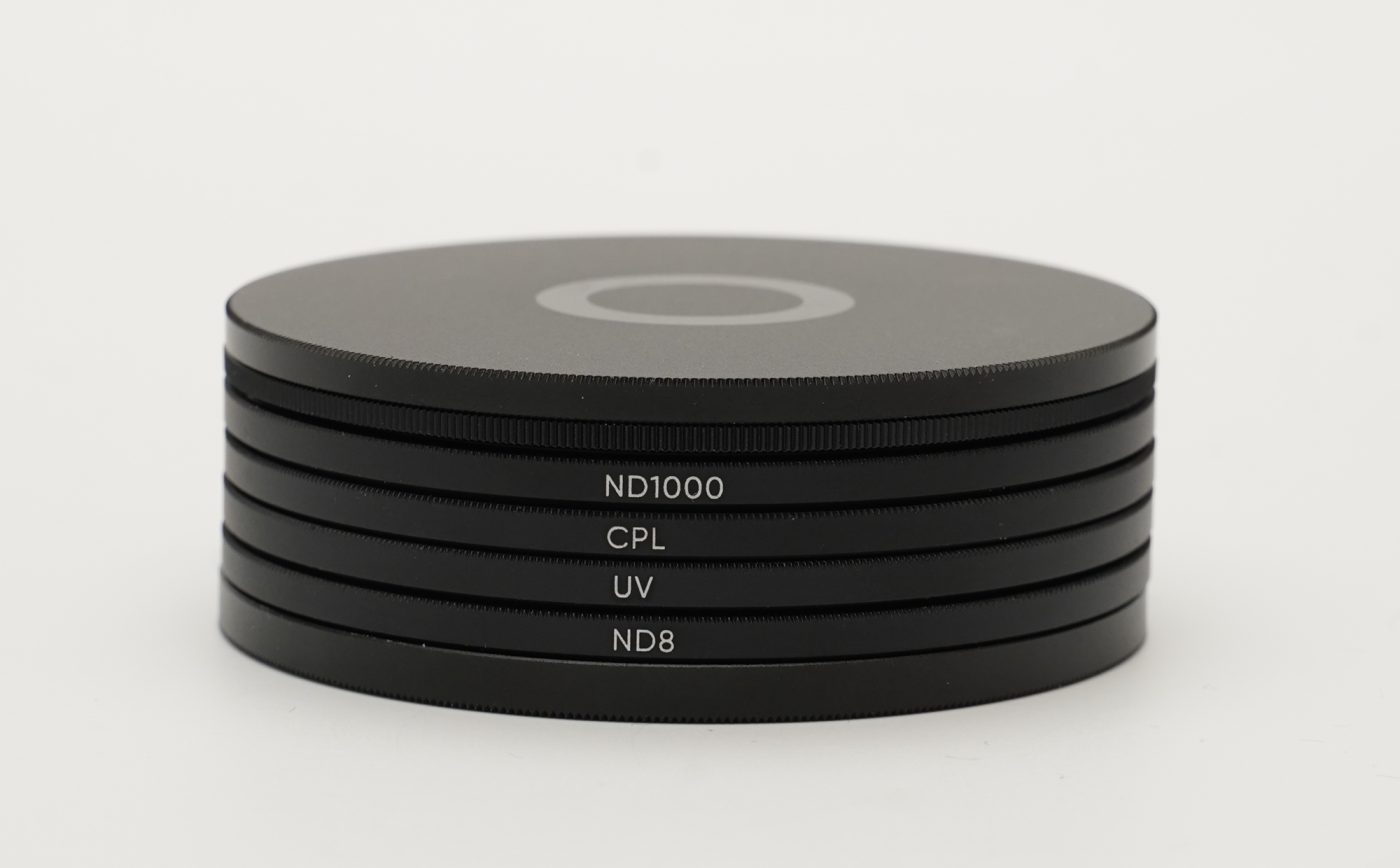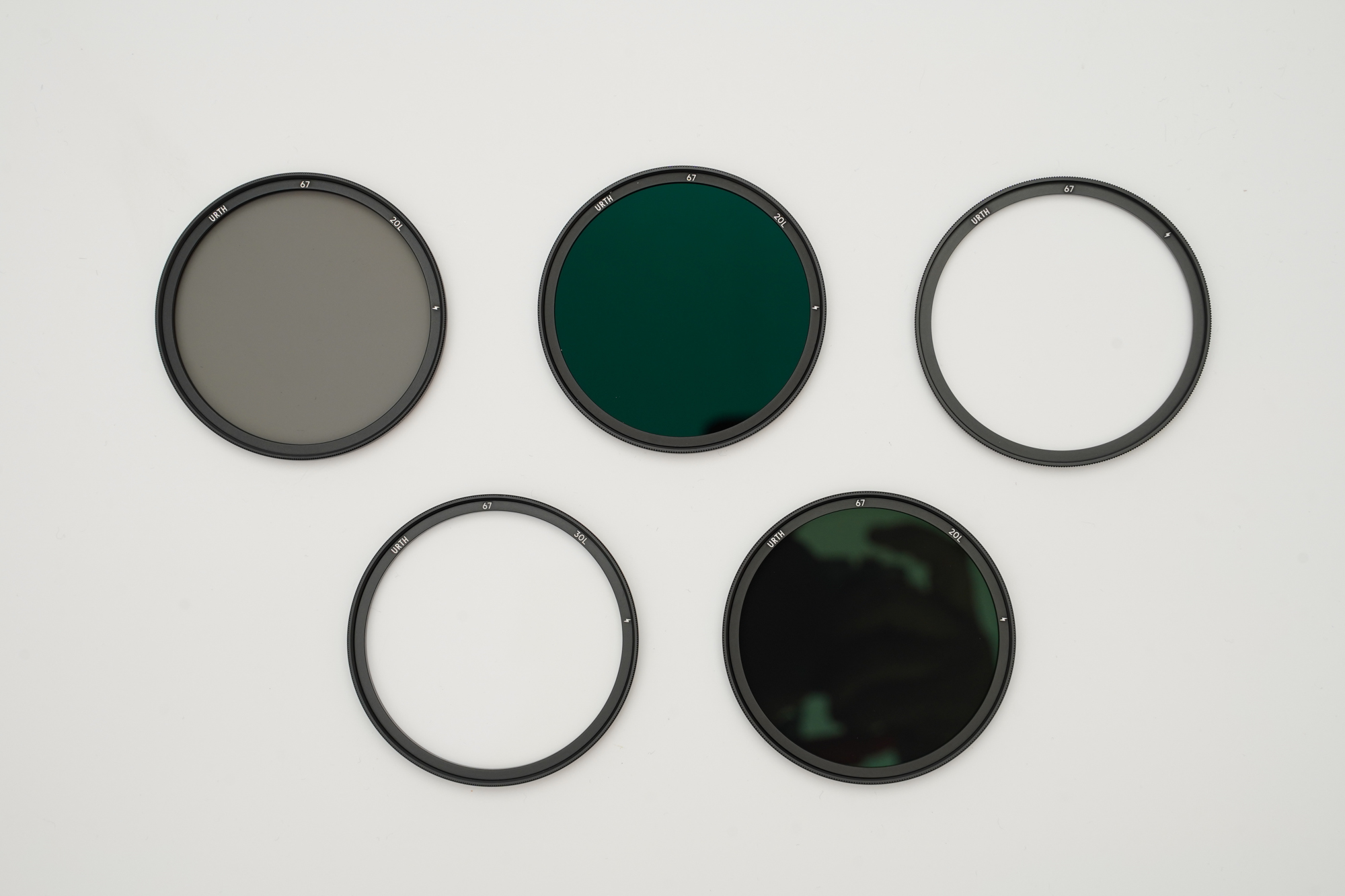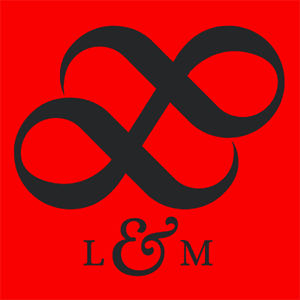Today I take a look at the Essential Plus magnetic filter system from Urth. Magnetic filters have been around for a few years now. For many users, magnetic filters have a tremendous impact on their photography. Their simplicity and speed let more photographers actually use filters.
Magnetic filters all use the same basic approach: a mounting ring is screwed on the lens and remains there permanently. Afterwards, when a filter is needed, it mounts instantly simply by being placed in contact with the mounting ring.
Several companies are now offering magnetic filters. Freewell has been one of the first to offer them. K&F CONCEPT also have an ever-expanding line of magnetic filters. Polarpro also recently released their take on the idea. Another photo accessory making joining the fray is Urth. Offering bags, straps, filters and many other products, Urth sets itself apart with solid (often lifetime) warranties and a positive carbon footprint, including the use of recycled materials and planting trees for each purchase.
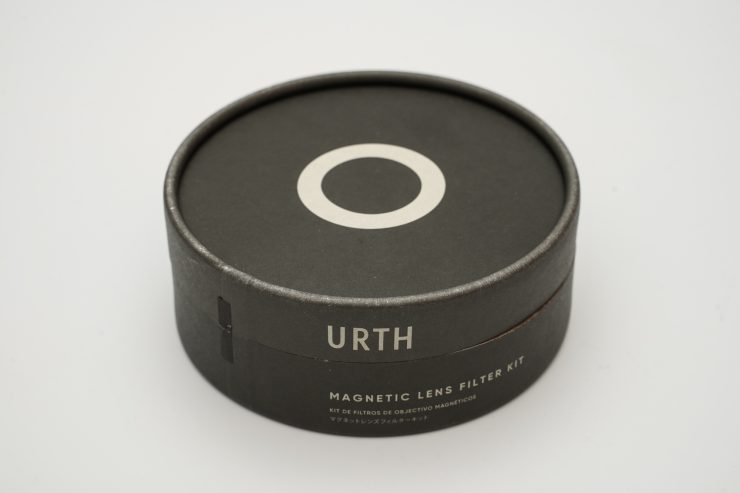
Urth makes many filters. Their magnetic line is simply identified by the “magnetic” label. I am testing the Essential Plus kit, which includes a mounting ring, UV filter/mounting ring, a circular polarizer, ND8/1000, as well as a lens cap and rear filter cap.
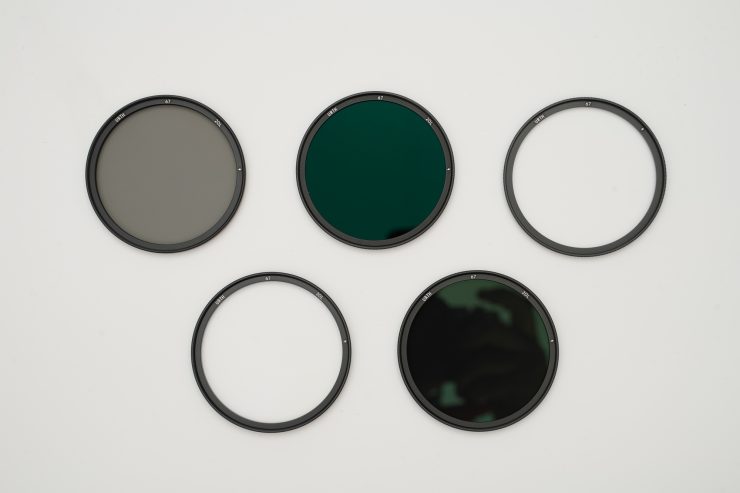
Physical Description
The Essential Plus kit ships in a circular carboard case. It includes a cleaning cloth.
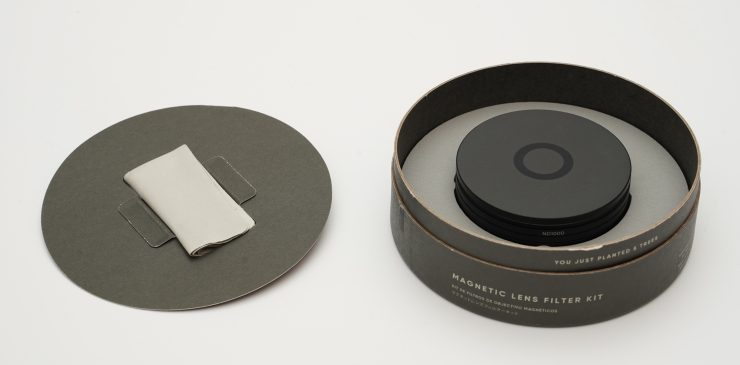
Instead of including a case, Urth uses an interesting a minimalist approach. The filters ship with a front cap (which can also serve to protect the lens, replacing the original lens cap) but also a rear cap. One or several magnetic filters can thus be sandwiched between those two caps and protected from dust without requiring a bulky case.
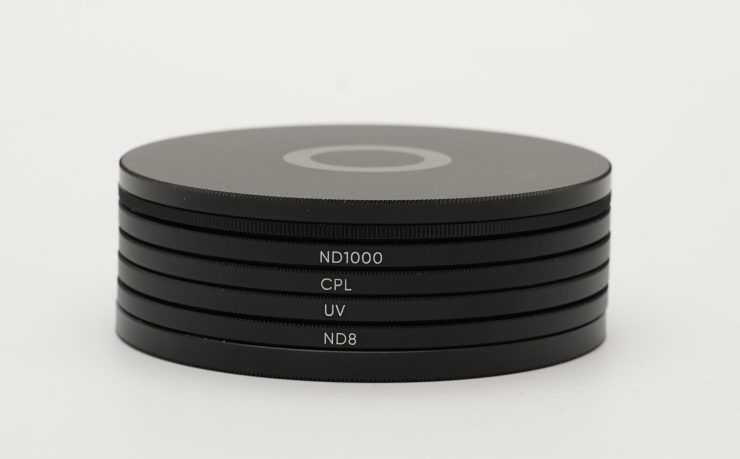
The filters are very thin since they do not require any thread. They are identified on the edges only.
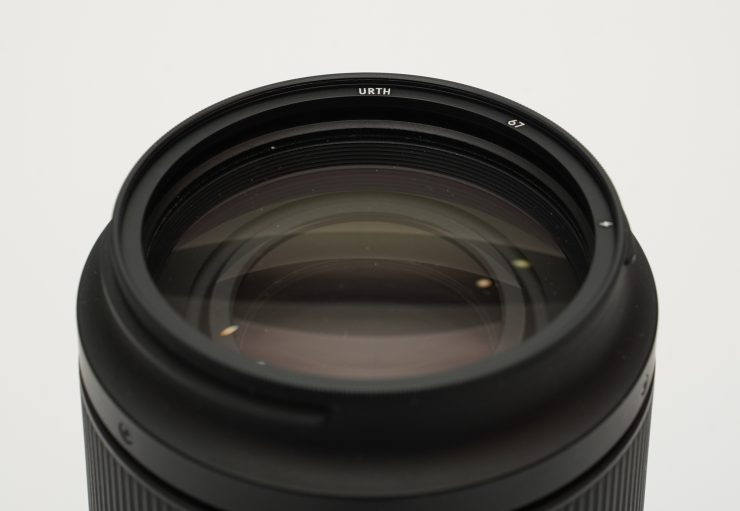
The front of each filter shows the diameter and a lightning icon to remind users of their magnetic properties.
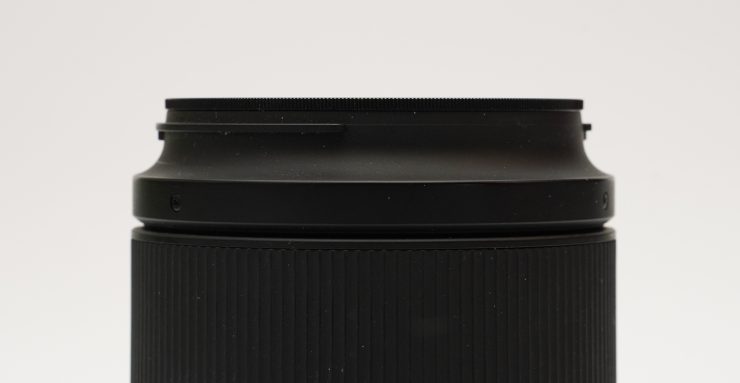
The mounting ring is extremely thin, adding about 2mm to the length of a lens. The UV filter included in the Essential Plus kit can also serve as a mounting ring, since it is threaded. Both of these support the mounting of magnetic filters at the front, the use of Urth’s lens cap, and also the use of a regular clip-on lens cap for users who prefer using their original caps. This simple quality must be highlighted, since some competitors require the use of their own proprietary caps, increasing the potential cost of ownership if multiple lenses are used. With the Essential Plus kit, two lenses can be equipped, via the UV filter and regular mounting ring, without spending more.
Like other magnetic filters, Urth’s CPL has no moving part. It simply spins on the mounting ring and stays in place otherwise.
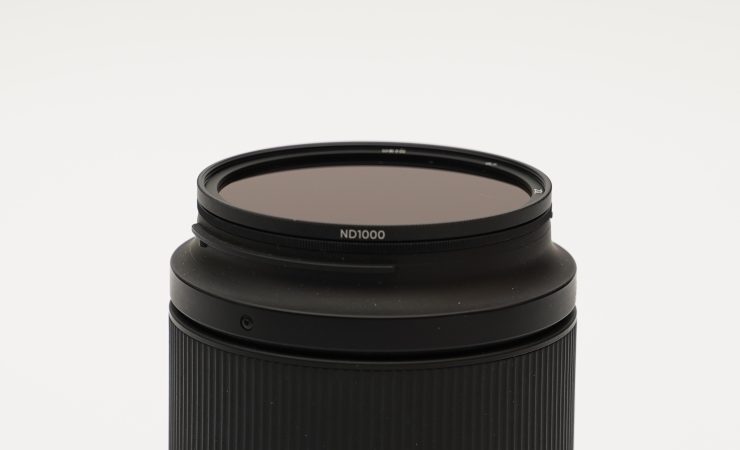
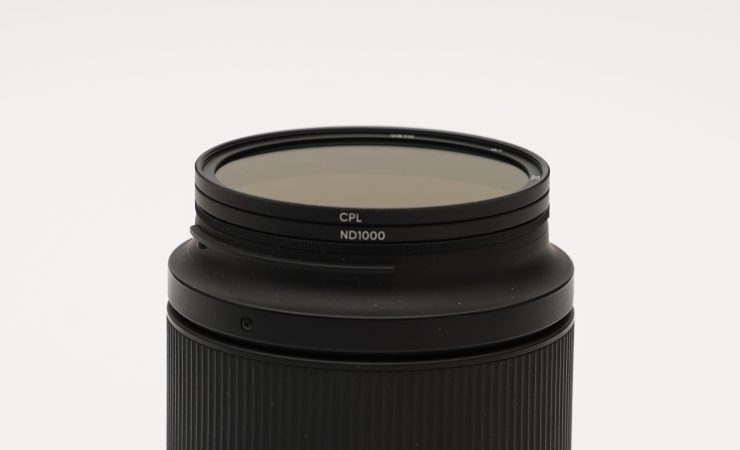
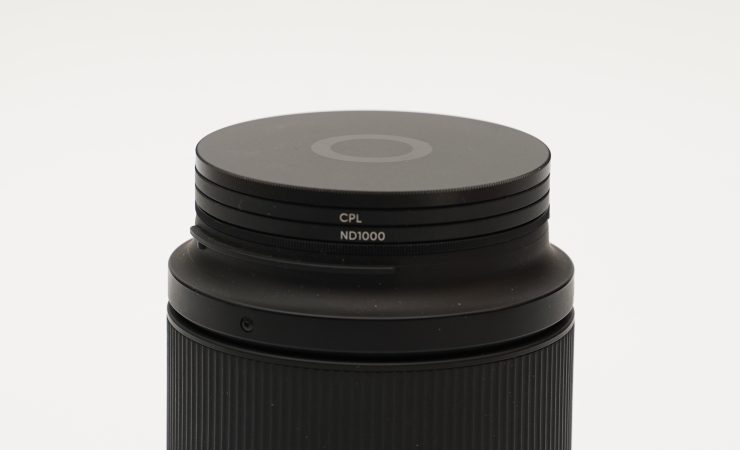
In addition to being thing, the filters can be stacked at will. Stacking, for instance, a CPL and an ND1000 filter results in a total thickness often thinner than a single regular screw-on filter.
Controlled Tests
A filter can be well made but deliver poor optical performances. Crippling resolution or creating color casts are the main two flaws of subpar filters. To evaluate Urth’s filters, I used a standard, detailed target. I took a picture without any filter to get a baseline, then took the same picture with each of the three filters under test.
The following images show the results for each filter. They are center crops from much larger images.
UV


The UV filter/adapter causes no impact on colors, and no visible degradation in sharpness.
CPL


Impressively, the circular polarizer has no negative impact on images. Quite often, CPLs cause yellow color casts, which is not the case here. Sharpness is also identical with or without the filter.
ND8


The ND8 filter has absolutely no impact on images, preserving sharpness, colors and contrast.
ND1000


The ND1000 filter causes a slight decrease in sharpness and has a minimal impact on contrast. Only side-by-side images allow me to observe this however, as the differences are tiny.
Optical Test Summary
Test results with the Urth filters are excellent. Only the ND1000 filter causes a subtle effect on contrast and sharpness. All the other filters, including the circular polarizer, preserve image quality without any impact on resolution and colors. This is better than many higher-priced brands.
In Use
I have praised the benefits of magnetic filters in the past, and my opinion has not changed over time. Using a magnetic system makes photography more enjoyable for many reasons. When hiking or walking around town, stopping to fiddle with screw-on filters quickly becomes annoying, especially if there are non-photographers in the party. If multiple filter changes are required, even a dedicated photographer can become tired and simply give up. A magnetic system changes this.
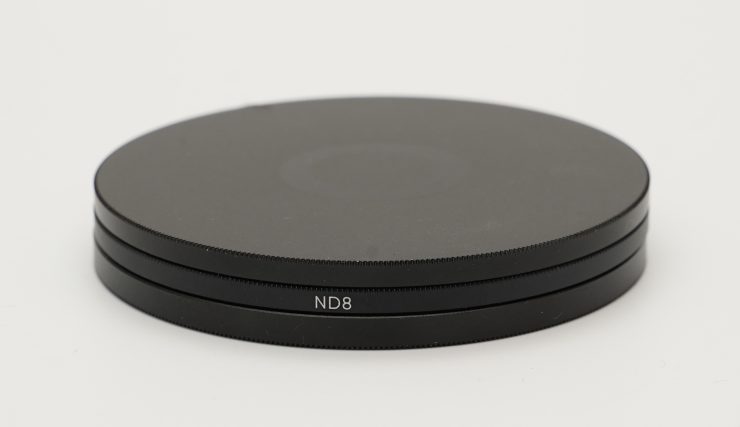
Urth’s system works just as expected. The mounting ring is thin and unobtrusive. The magnetic attachment is strong, and the filters have textured edges to grab easily. I did not experience flare, decreased contrast, or negative impacts on images while using the filters. I also had no trouble cleaning the filters. The coatings appear durable, and moderately careful use left them pristine.
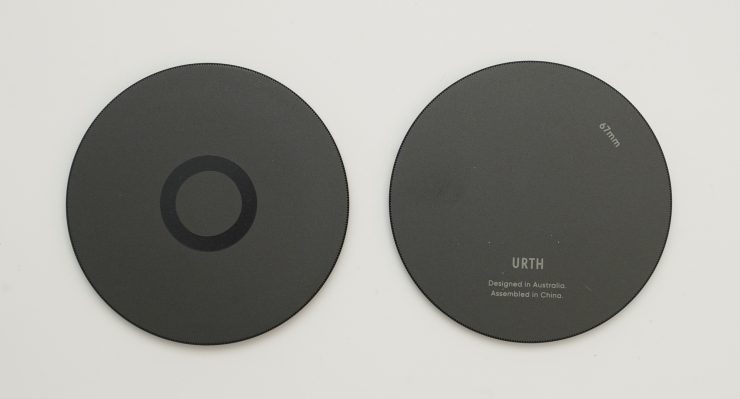
One unexpected perk is that Urth’s system is compatible with at least another magnetic system. While Freewell and Polarpro have proprietary and closed systems, Urth’s filters share their specifications with K&F CONCEPT. This means filters can be swapped between the two brands. This is excellent news, and I would love to see more companies follow suit and make their systems work together. This ultimately makes it simpler and more economical for the users.
Value
Urth’s filter system is priced competitively. Their Essential Plus kit costs $205 USD and includes two ND filters, a CPL, a mounting ring and a UV filter/mounting ring.
A comparable system from Freewell normally costs $150 USD for 67mm filters. A Polarpro Helix kit (which uses a slightly different approach, with a variable ND filter and no polarizer) will require $329.99. Haida’s Nanopro magnetic filter kit costs about $149.95. Lastly, a K&F CONCEPT kit costs about $90 but lacks an ND8 filter, which will require an additional $46 or so (but includes an extra mounting ring and lens cap).
Urth and K&F CONCEPT are the only companies offering a large range of available diameters, many others limiting themselves to a few options only. Urth’s filters can be purchased for diameters between 37mm and 95mm, an unrivaled range.
Conclusion
From a novelty several years ago, magnetic filters have become more and more common nowadays. Many companies try to put their own flavor on the concept. This often leads to proprietary systems, and sometimes make things unnecessarily complicated.
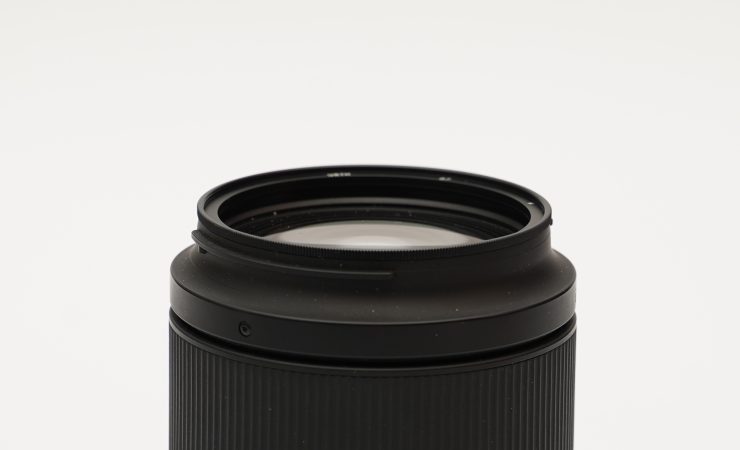
Urth’s magnetic filter system avoids these pitfalls. The filters are easy and straightforward to use, just as they should be. Their optical quality is excellent, with no visible impact on images (except a subtle decrease in sharpness for the ND1000 filter). The build quality is also very good, with thin metal housings, robust coatings, solid magnetic attachment. The inclusion of a rear cap makes for a smaller volume in the camera bag while still ensuring adequate protection. The filters can be stacked for storage and in use.
Urth’s lineup covers the most important bases, with UV, ND and CPL options. Black mist, graduated filters and a few other uncommon filters are missing, as is the case for most magnetic filter makers. The good news is that Urth’s system is compatible with magnetic filters from some other brands. This means if a particular filter isn’t currently available, there is a chance to find it from another brand, making the Urth system more versatile than most.

